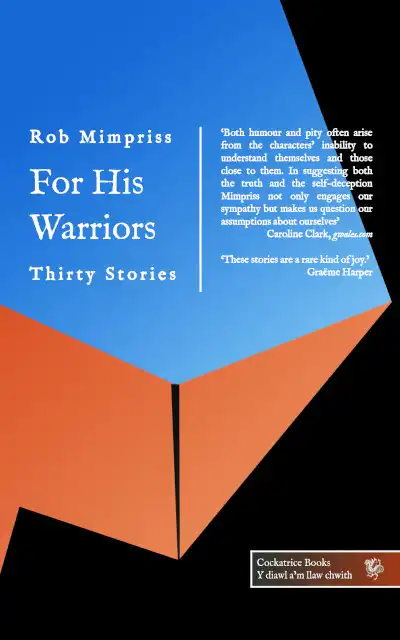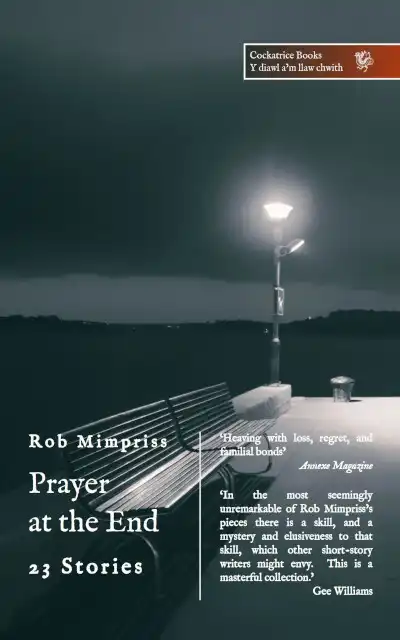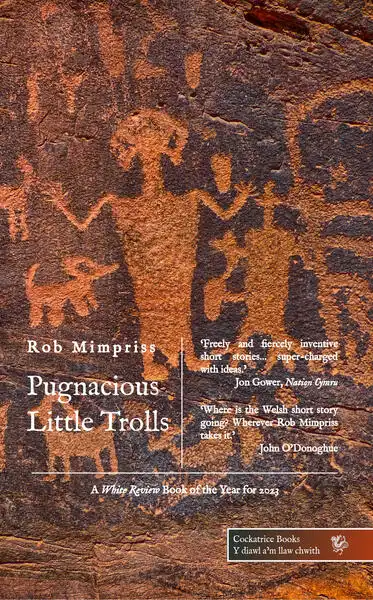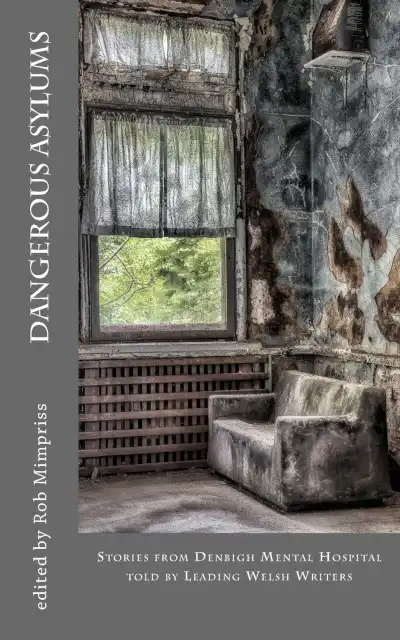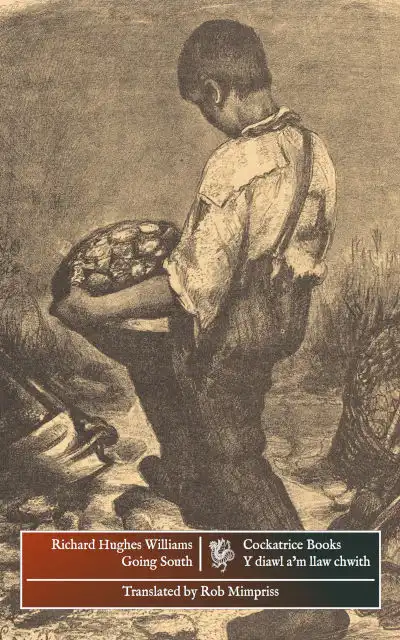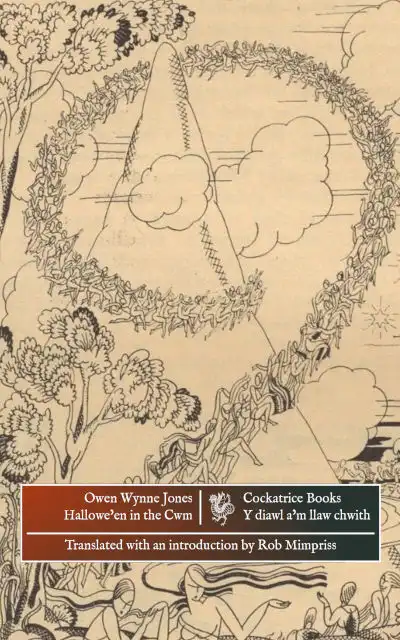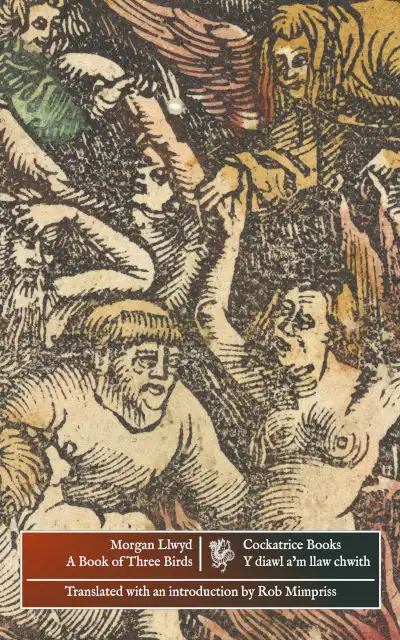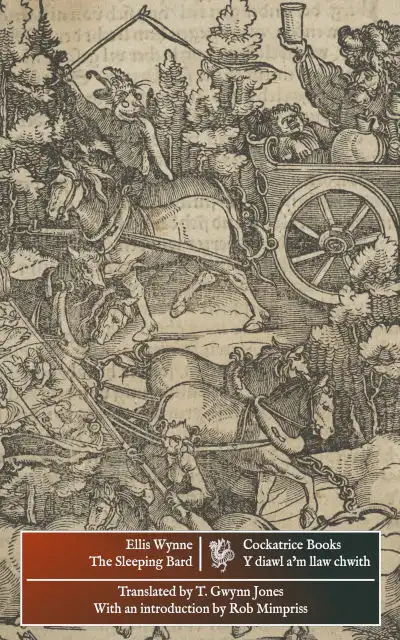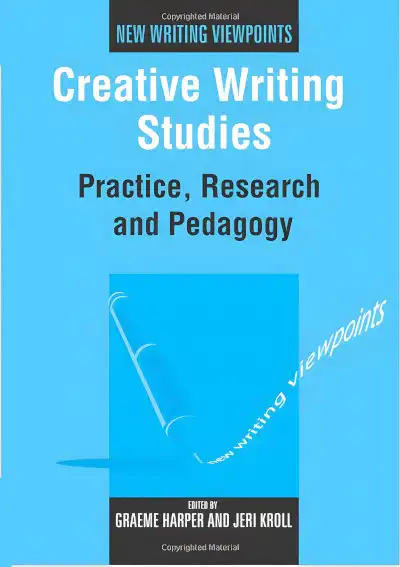Daniel Owen (1836-1895), the son of a collier killed in a mining accident, and the apprentice of a draper and Methodist elder, became a poet and short-story writer, and one of the first and greatest of Welsh-language novelists. His Fireside Stories were first published in 1895. Both the stories I have translated for this site demonstrate their anecdotal origins and Daniel Owen’s fascination with the collective life of the Methodist movement. Their particular themes of chapel discipline, and of reputations threatened by slander, figure in his major novels, Rhys Lewis and Enoc Huws.
This is one of the stories my Uncle Edward loved to relate, for it was true, every word of it, as he would say:
You know that the Methodist congregation in this town is an old one, one of the oldest in the county. At one time the people did not contribute half as much in financial terms as religionists today, and there was less need of money. Since a minister and two preachers sufficed for the cause in this town, in part doing the work of a pastor, nobody thought to give them a penny for their labour. They would be given a little for preaching, and that was all. But although donations were low, the congregation had paid for the chapel over many years, and they had money in the hands of a treasurer. The old people were rather naïve as regards chapel finances, and the whole matter was entrusted to two of the deacons, who were generally regarded as honest men. Hence, no one in the congregation asked to inspect their accounts, and if anyone had done so, it would have been taken as an insult. Indeed, their fellow deacons did not enquire into their proceedings — they merely accepted their end-of-year report in utmost silence.
In those days many came quite some distance to attend the chapel in town, in particular from Gwernhefin, and amongst them two brothers, respected farmers. In due course the two brothers requested permission to begin a congregation in Gwernhefin, since the two-mile walk three times on a Sunday was onerous. The request was accepted by the congregation in town, and a small chapel was quickly built there to hold the Sunday morning Bible class, and to hold an afternoon service by whoever happened to be preaching in town. This arrangement continued for a number of years until the Methodist cause was established in Gwernhefin, and Edward and Thomas Williams — the two brothers — were made deacons there. Within a few years they had paid the cost of building the little chapel, all except forty pounds, and because it was known that the brethren in town had money in hand, they were asked for the loan of forty pounds without interest, to be paid back on request, and this was agreed. Having received the money, the brethren at Gwernhefin were in haste to repay the debt.
There was a member of the congregation in town named John Evans, a man very zealous for the cause, whose distinguishing feature was the prolixity of his prayers. Our knees would grow stiff every time John Evans was called on to pray. Although there were several elections of deacons in town during the length of John Evans’ stay there, he was overlooked every time. But John Evans would make up for it by praying three times as long as anyone else every time he had the opportunity. In due course the fellowship in town needed money, and called on the congregation in Gwernhefin to pay back their forty pounds. After a flurry of concerts, lectures and tea parties, the money was raised. Years went by, and by this time the treasurers of the congregation in town had died, and John Evans had moved to Gwernhefin, and been chosen as a deacon there. As it had been in the town, so it continued in Gwernhefin — the two brothers kept the financial accounts to themselves, but the men were of transparent character, and of undoubted godliness. About a year after John Evans had been chosen as a deacon, one of the two brothers died, namely Edward, and the whole responsibility for the finances of the chapel fell on Thomas’s shoulders alone. Soon, for some reason or other, John Evans hardened in his spirit, and refused to take any further part in the public life of the chapel. He would attend services regularly to watch with a scowl. One Sunday night in the seiat, after he was importuned to say a word, and refused, Thomas Williams asked him:
‘John Evans, what is the matter with you? For a long time now you have refused to take part. Who has offended you? Please tell us.’
John Evans rose to his feet, and said:
‘Thomas Williams, answer this question: did you pay back the forty pounds the congregation in Gwernhefin borrowed from the congregation in town?’ He sat down, to the astonishment of the congregation, and none more than Thomas Williams himself.
‘Pay it back?’ said Thomas Williams. ‘Yes, of course, and I have a receipt at home. I take care to keep all my receipts.’
‘Very well,’ said John Evans. ‘Bring it here, if you can.’
Every soul in the meeting, except John Evans, believed that Thomas Williams could produce the receipt, and once they had left the meeting some of the brethren upbraided John Evans for his rudeness. But his only response was, ‘Wait a while and see if he can produce the receipt.’
Thomas Williams had a large and respectable family, and every one of them went to work that night looking for the receipt. There were many hundreds in the house, some of them half a century old; but the receipt they needed could not quite be found, and Thomas Williams and his family were in great distress. Everything in the house was turned over, every nook and cranny was searched, but to no avail. The old man could neither sleep nor eat, and by the following seiat he was stiff with fear.
After the opening service in the seiat, John Evans got to his feet, and asked:
‘Thomas Williams, did you bring the receipt for the forty pounds tonight?’
‘No,’ said the old deacon. ‘The children and I have searched high and low for it, and we cannot find it even so. But I am sure I paid the money, and I believe this church will accept my word. I will go into town tomorrow to visit the daughter of Owen Jones, and no doubt her father’s old records will show that I paid the money. Owen Jones and my brother are in their graves, or they would be able to testify to the truth of what I am saying.’
‘I have already been in town,’ said John Evans. ‘There is nothing in John Owen’s records to show that you paid the money, and no one in the congregation in town remembers you paying back a penny of the money.’
‘God is my judge,’ said Thomas Williams. ‘I paid the money in good faith, and I am certain I can prove the truth of it.’
Thomas Williams made painstaking enquiries among the fellowship in town, and among others, but nobody could remember him paying the money. By this time the matter had become the gossip of the area, and some of the members in Gwernhefin had come to believe as John Evans did. But the greater number held fast in their opinion that Thomas Williams could be trusted, since he was in comfortable circumstances, and money was no temptation to him. Thomas Williams and his family had been the backbone of the congregation for fifty years, and not one house had been as open to preachers in the area as Trosygarreg, their home. Things went from bad to worse, and it is easier to imagine the feelings of Thomas Williams and his family than to describe them. The matter was brought before the Monthly Meeting, and two ministers and a deacon were appointed to go to Gwernhefin ‘on a sensitive matter,’ and it was widely believed that Thomas Williams would need to defend himself, not only as a deacon but as a member of the chapel also.
The evening of the enquiry came, and as it happens on such occasions, there was not in an inch of space free in the seiat. Thomas Williams looked grave and resolute, and his sons looked haughty, and some said that it would be better for them to stay at home than to hold their heads high, as they did. After the youngest minister had given the reading and prayed, referring more than once in his prayer to that ‘distressing incident,’ and after the children had recited their verses and been sent home, the most senior minister laid the matter that had brought them there clearly and with emphasis before the congregation, and not without revealing great distress of spirit, for he and the accused were close friends. Then, with great tenderness, he asked the old deacon what he had to say for himself? Thomas Williams got to his feet in the midst of a silence like the grave, and spoke, as well as I can remember, like this:
‘We borrowed the forty pounds thirty-five years ago, and I paid them back twenty-five years ago last Wednesday. Since the time John Evans brought his accusation against me, you can easily imagine my feelings. Since then I have barely eaten or slept. From that day to this, my children and I have searched for the receipt in every corner of the house, but completely in vain; and the thought of your coming here tonight, and for this reason, has stabbed me like a knife in the heart. For the hundredth time my children and I searched the house for the receipt from top to bottom today, but to no avail. When we were making a cup of tea, I said to them, “Well, children, your father will be friendless tonight, but my conscience is clear of the fault laid against me.”’ Then the old deacon broke down, and we had to wait a moment for him to collect himself before he continued: ‘After tea I shut myself in the parlour to wait until the seiat, and if ever I prayed, I prayed then. I felt that God was dealing very harshly with an old servant. I must confess that in my weakness I reproached Him rather. I told Him I had tried to serve Him since my boyhood, that I had contributed to His cause as He had blessed me in the world, that I had opened my house to welcome His servants for many years, and I asked Him if He was going to cast me aside in my old age and grey hairs, and I cannot claim that I forebore from suggesting that this would do Him dishonour. In any case I felt better after addressing Him in this way, and then I left the whole matter to Him, except to tell Him also that I would be watching how He dealt with me. There was still a little time left before the seiat, and I thought I would try to read a little to fill the time. I reached for an old copy of The Treasury on the shelf, and God is my witness that I speak the truth: on the very page it opened I saw the receipt. I cried out loud, “Receipt! Receipt! Receipt!” and the children were at the door thinking I had lost my senses, which would be no wonder, and I had forgotten that I had locked the door, and I was still crying out, “Receipt!” After I had calmed down and opened the door we got down on our knees. Here is the receipt, Mr. E———, and you will recognise Owen Jones’s writing.’ Then Thomas Williams sat down, and I must say that there was barely a dry eye in the room.
‘W. . . w. . . Well, Mr Williams,’ said Mr E———, ‘there are many good things in The Treasury, although I say so as editor: but this must be the best thing you have ever found there.’
I cannot describe our feelings that night, said my Uncle Edward. Everyone was in tears of joy, with the exception of John Evans. He looked as though he had been shot. But some believed that John Evans had been sincere in his testimony, although he had been mistaken. After this he did not live long, and he seemed like a broken man.

